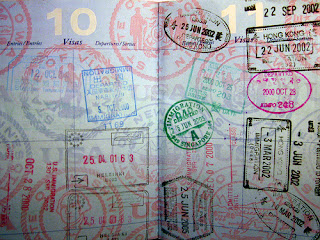YouTube, owned by Google, contains billions of information
through videos posted by worldwide users. It is a private company; therefore it has the right to choose whether or not some content should be posted. However
when YouTube decided to ban the film mocking the Prophet Mohammed in Libya and
Egypt, it was accused to react against the sacred First Amendment of the
American constitution. The problem is that the conception of freedom of speech,
as it is conceived in the U.S., is not perceived the same in every country,
even Occidental ones. Some say that freedom of speech is not absolute; some
others argue that it is inviolable and therefore everyone can pretty much say
anything about anyone.
Another problem is that Arabic countries don’t understand
why a government like the U.S., was not able to control the airing of that
video. It is not that they were not able to do so, but that they couldn’t,
because of the protection of freedom of speech. Moreover, it is technically
impossible for a government to control a website as developed as YouTube is. Because it is a private company, government can't get involved with what
they are posting. This process is hard to understand from Arabic countries
standpoints, mostly because freedom of speech doesn't exist in these countries.
Speech in general is controlled, especially on Internet.
But what about social media's responsibilities when it comes
to such violent outcome?
In my opinion YouTube made the right choice when it decided
to block users from viewing this video in Libya and Egypt. Although we can
argue that the rules it applies to its users in the United States should
also be applied abroad, there are some extreme cases. In this particular
situation it seems in everyone’s best interest that YouTube acts differently
abroad. In this case, we are implying the safety of a country and of U.S.
representatives. This decision was made with the sole intention from YouTube, to
calm down the situation and to take responsibilities toward the effects that
one video created.
Blocking this video won’t resolve the situation, excuse what
happened, or even minimize extreme groups from violently protesting it, but it
is at least a step forward. Although this decision is and will be criticized
regarding freedom of speech, I think YouTube made a smart but not easy
choice.
Dealing with freedom of speech on social media can be delicate when users
are from countries where speech is controlled, like in China for example. Some networks make deals with
the government to be present but restricted; some others just choose not to
exist in these countries.

Facebook has a specific clause in its terms of agreement
about hate speech and violence: “You
will not post content that: is hateful, threatening, or pornographic; incites
violence; or contains nudity or graphic or gratuitous violence.” But that
clause doesn’t seem to be keeping users from posting violent or hateful
messages without being banned. According to Facebook "Groups that express
an opinion on a state, institution, or set of beliefs – even if that opinion is
outrageous or offensive to some – do not by themselves violate our
policies." So that means that if an individual posts something hateful he
will be banned, but if a group says something violent it won’t. In August 2011,
there was a proliferation of pro-rapes pages on the social network that led to
several petitions in the U.S. and U.K. to take them down. These groups were entitled
for instance: “You know she's playing hard to get when you’re chasing her down
an alleyway.” Although these pages were clearly encouraging rape, Facebook
declared that these kinds of speeches were equivalent to tell a rude joke. This
is an example of how social media can defend freedom of speech even when it clearly involves hateful and violent speech.
It is interesting for me to discuss the subject from an European
point of view. Although freedom of speech and freedom of press is as essential
in Europe as it is in the U.S., I don’t think we have the same conception of
the matter. Indeed, although this is a sacred right, in France we consider that
even when you have the freedom to express your opinion you have a responsibility
not to be offensive.
With the growth of social media comes the question of
their responsibility with the contents posted on their platforms. As freedom
of speech should lead the way when they’re dealing with that, social media
still carry a great responsibility toward their users. That’s why they should
regulate what it is posted on their network. Although they should promote
freedom of speech, they have to take into consideration mutual respect. They shouldn't be the place where hateful and violent speeches can be expressed freely. There shouldn't be a place, on Internet or not, were violent and hateful speeches could be express.
The greater the audience is, the greater the responsibility
of what is said is.




























